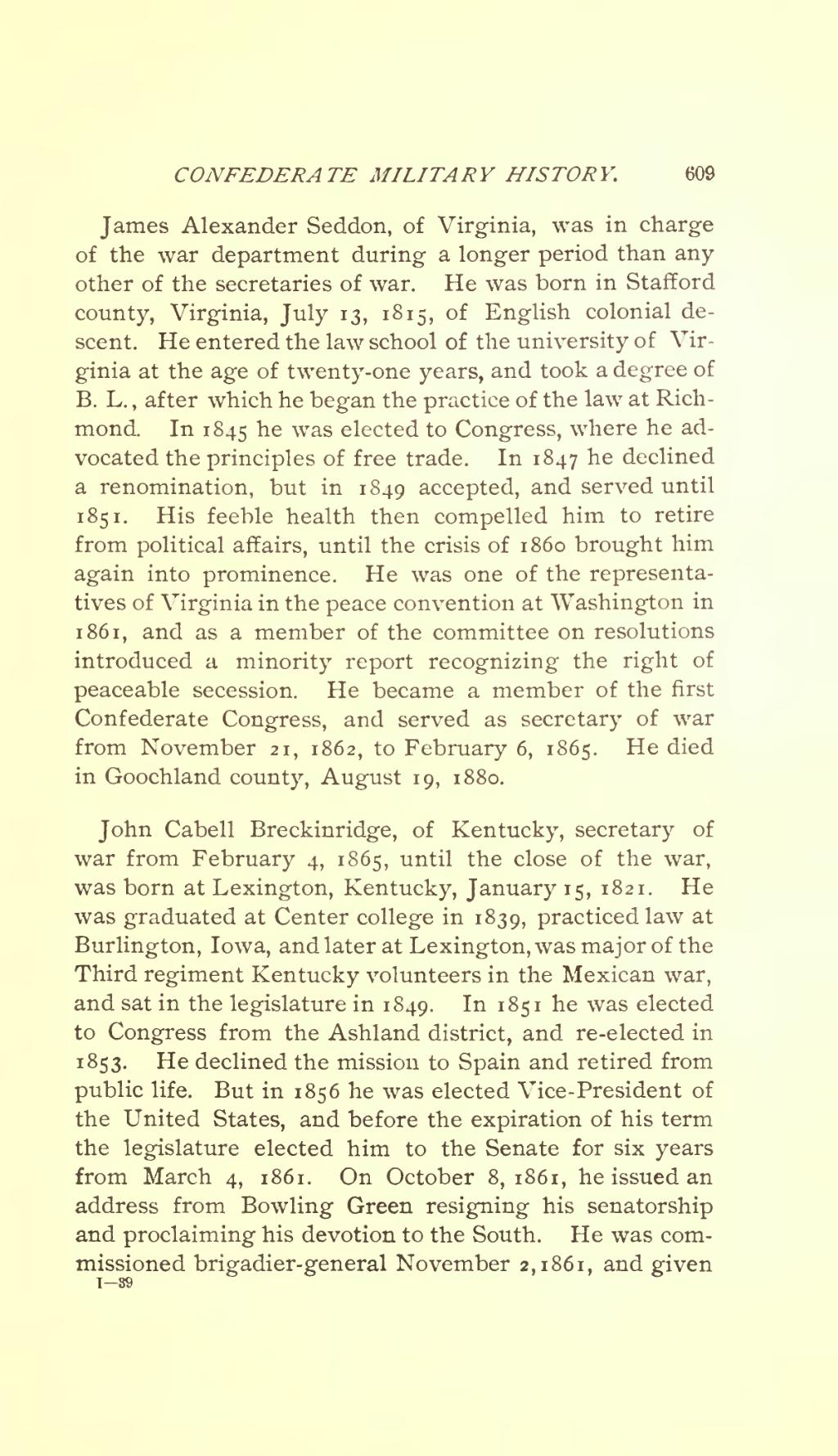James Alexander Seddon, of Virginia, was in charge of the war department during a longer period than any other of the secretaries of war. He was born in Stafford county, Virginia, July 13, 1815, of English colonial descent. He entered the law school of the university of Virginia at the age of twenty-one years, and took a degree of B. L., after which he began the practice of the law at Richmond. In 1845 he was elected to Congress, where he advocated the principles of free trade. In 1847 he declined a renomination, but in 1849 accepted, and served until 1851. His feeble health then compelled him to retire from political affairs, until the crisis of 1860 brought him again into prominence. He was one of the representatives of Virginia in the peace convention at Washington in 1861, and as a member of the committee on resolutions introduced a minority report recognizing the right of peaceable secession. He became a member of the first Confederate Congress, and served as secretary of war from November 21, 1862, to February 6, 1865. He died in Goochland county, August 19, 1880.
John Cabell Breckinridge, of Kentucky, secretary of war from February 4, 1865, until the close of the war, was born at Lexington, Kentucky, January 15, 1821. He was graduated at Center college in 1839, practiced law at Burlington, Iowa, and later at Lexington, was major of the Third regiment Kentucky volunteers in the Mexican war, and sat in the legislature in 1849. In 1851 he was elected to Congress from the Ashland district, and re-elected in 1853. He declined the mission to Spain and retired from public life. But in 1856 he was elected Vice- President of the United States, and before the expiration of his term the legislature elected him to the Senate for six years from March 4, 1861. On October 8, 1861, he issued an address from Bowling Green resigning his senatorship and proclaiming his devotion to the South. He was commissioned brigadier-general November 2,1861, and given
